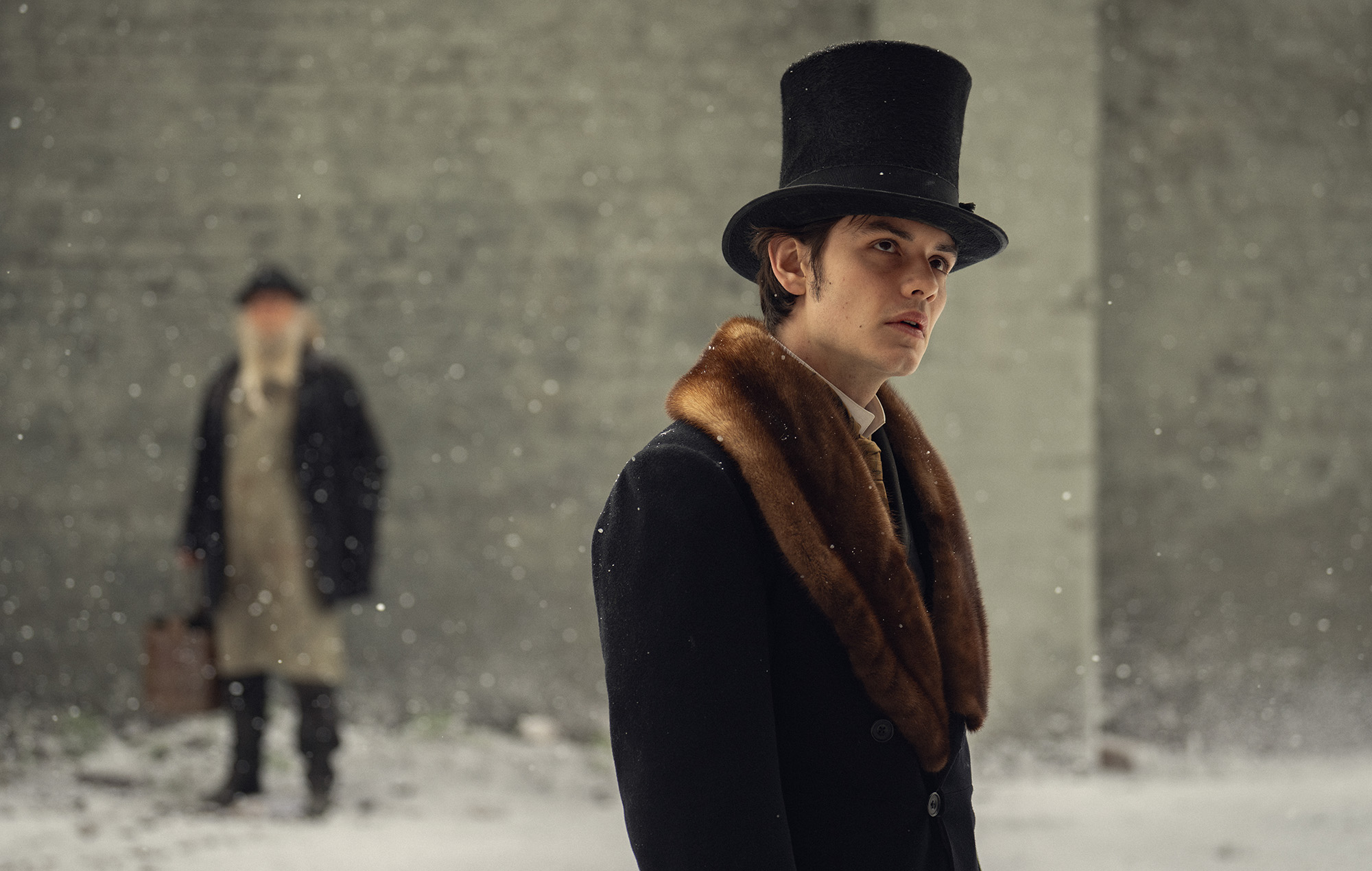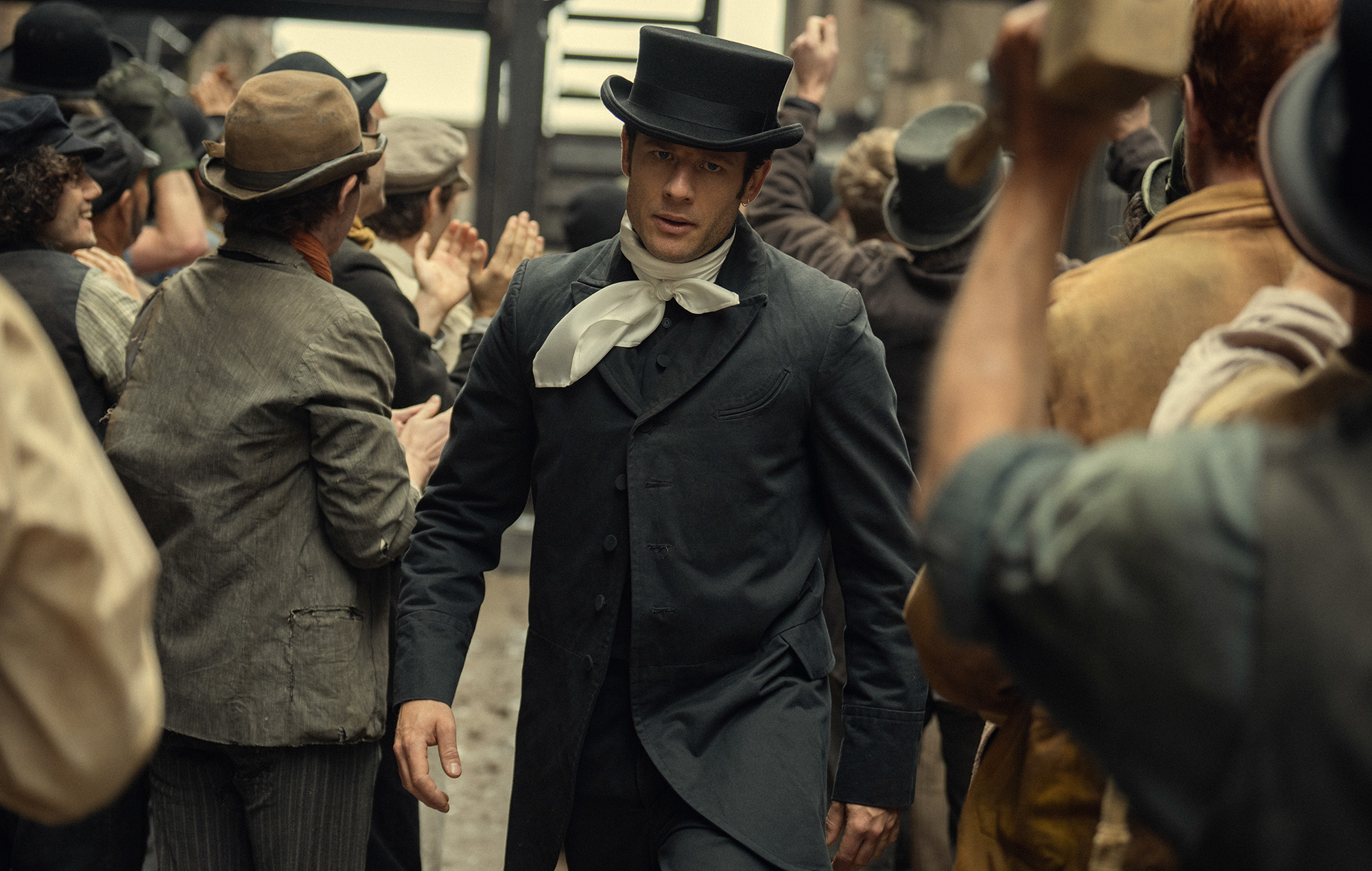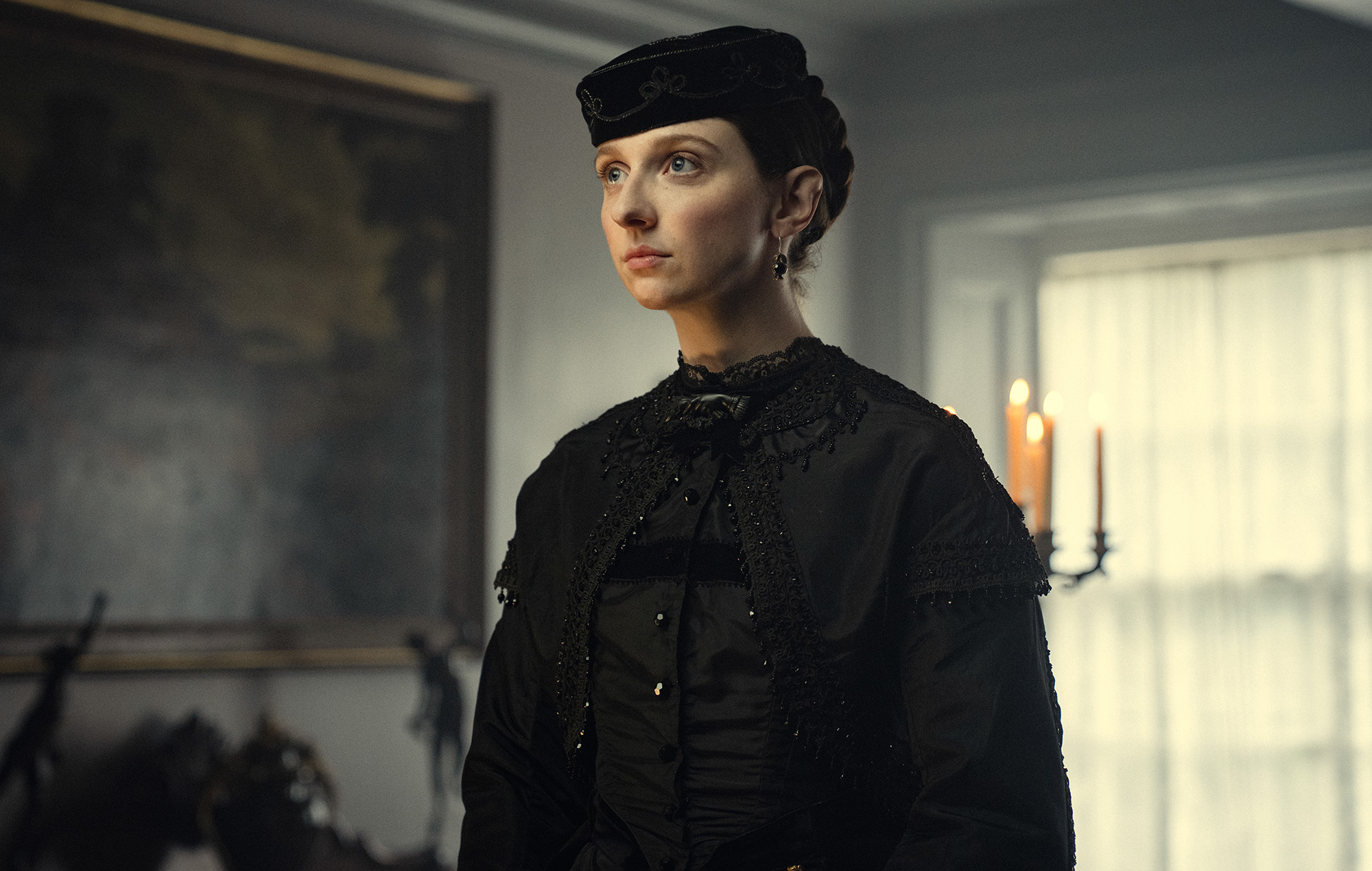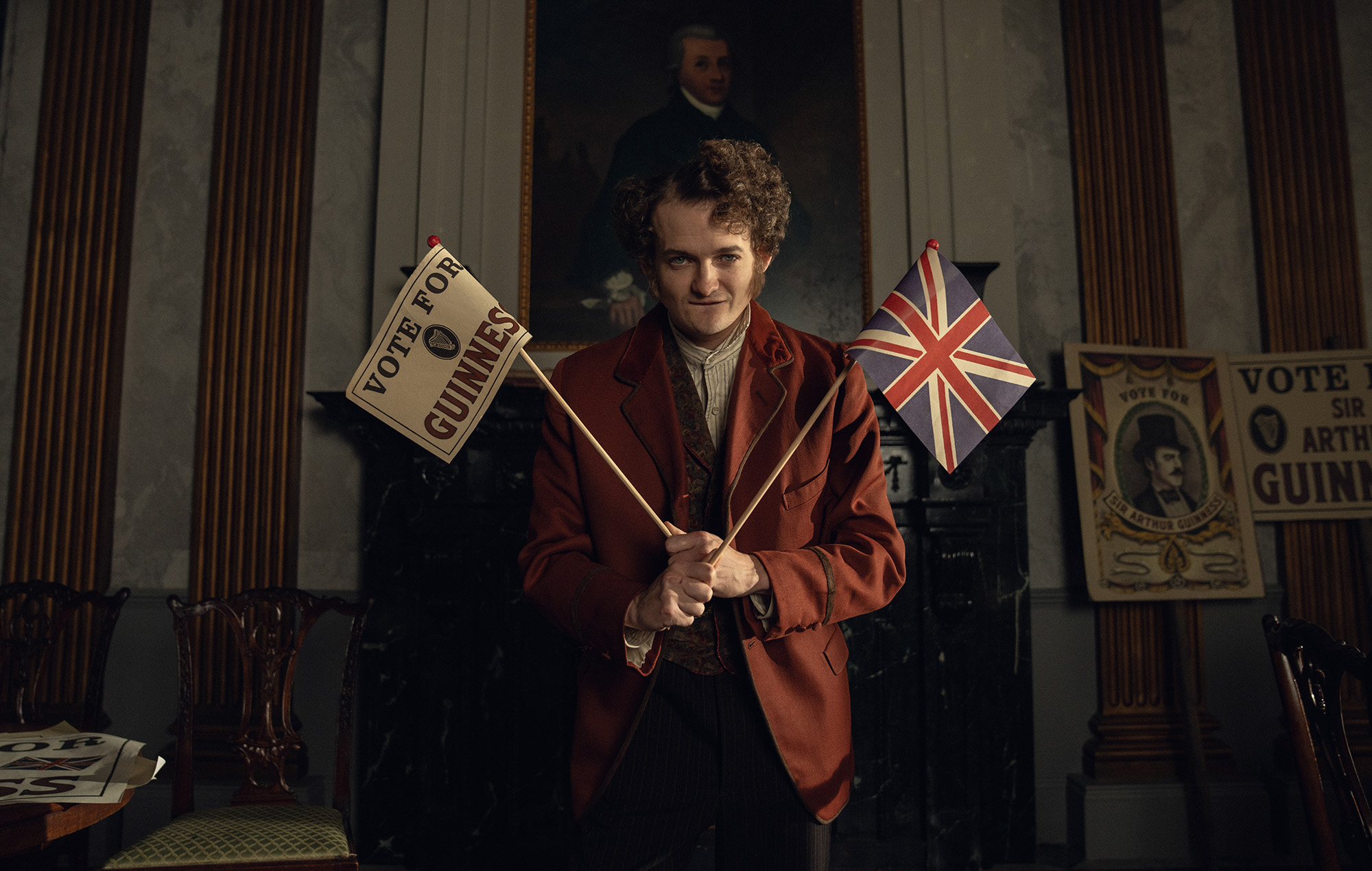Why ‘House of Guinness’ is TV’s most modern period drama


When NME is granted an audience with Steven Knight, the visionary showrunner behind Peaky Blinders, we find him perched coolly at the end of a long wooden table in the darkened suite of a posh central London hotel. It’s a bit like being led into a meeting with Vito Corleone, Marlon Brando’s character in The Godfather (though thankfully the 66-year-old Brummie is the more approachable of the two).
We’re here to discuss House Of Guinness, Knight’s sprawling new Netflix drama about the real-life titular family, who rose to de facto aristocratic status in their native Ireland thanks to their production of everyone’s favourite stout. After last year’s Victorian boxing drama A Thousand Blows, it’s his fourth show in two years, while there’s also the small matter of next year’s Peaky Blinders movie, The Immortal Man, for which he wrote the screenplay. How does he do it?
“I love to do it, I think, is the answer,” he says. “Even now, some of the stuff over the last two years has been written during the pandemic, actually. That was a great period for just getting stuff done. I do love to sit and write and I would do it anyway. The discipline is stopping, not making myself do it!”

House Of Guinness opens in Dublin, 1868, just over a century after the brewery was founded. Siblings Arthur (Anthony Boyle), Edward (Louis Partridge) and Anne (Emily Fairn) look on at the grand funeral procession for their father, whose death sets in motion a Succession-style plot. As the kids attempt to continue dad’s legacy, they must fend off Irish Republicans (such as brother and sister duo Ellen and Patrick, played by Niamh McCormack and Seamus O’Hara) opposed to the Guinness dynasty’s vast wealth and support of the British crown.
Then there are the likes of louche foreman Rafferty (James Norton) and the slippery Byron Hughes (Jack Gleeson), a go-between who links the Guinnesses to Republican revolutionaries in New York, a market ripe for expansion. Can they be trusted?
All of which amounts to a heady concoction that’s thick with intrigue; a slow pour with the luxurious attention to detail you’d expect from Knight. When NME asks more than a dozen cast members what appealed to them about the gig, they all say the same thing: its showrunner. Or, as Emily Fairn puts it: “Steven Knight and Guinness and Ireland. I thought, ‘This sounds so cool’.”
The drama arrives at a time when Ireland is dominating culturally, be it in literature, film and – of course – music. “It’s so special,” says Fionn O’Shea, who plays alcoholic middle Guinness brother Benjamin. “We’re a country who have always had extraordinarily talented artists in every field and [here’s a show] about Guinness, with a lot of Irish actors, musicians and people behind the camera as well.”
Indeed, the Guinness soundtrack prominently features Fontaines D.C. and Kneecap, bands who proudly fly the flag for their homeland. “We’re fortunate,” notes Knight, “that there’s a whole generation of Irish music coming through that’s got this power and energy, rebelliousness, roughness, rawness. And it really matches the energy that we want for the show. The score and the needle-drops really bring a modern audience into this and make people feel this is now; these are people we can identify with.”
This cuts to the quick of Guinness, which has to be the most modern period drama on telly. Forget the stuffiness of Downton Abbey and even the Victorian savagery of A Thousand Blows; here is an ensemble of characters who embody very contemporary sensibilities and are railing against the restrictions of their times.
“There’s a whole generation of Irish music coming through that’s got this energy” – Steven Knight
Nowhere is this more evident than in its female characters – just look at freedom-fighting Ellen, of whom McCormack says: “She really puts herself and applies herself to the cause, which so many women did back in the day that have just been forgotten. Hopefully she represents those characters, those women.”
We also have Olivia (Danielle Galligan), the skint, sexually liberated aristo who marries Arthur to mask his homosexuality at a time when it’s illegal to be gay. “It was rare for me to find an Irish female, definitely at that time, that is able to express herself sexually and physically like that,” says Galligan. “As women in Ireland, our bodies have been very policed over the years and we’ve only recently repealed the Eighth [Amendment, which banned abortion except in life-threatening circumstances for the mother but was overturned in 2018]. So, for me, that was really important and really brave.”
Edward’s hunger for power, meanwhile, says Partridge, is harnessed and steered by the female characters: “I think the women in his life urge him to look at the social possibilities and opportunities and the great good that he can do.”

Knight adapted the eight-episode series from a roughly 20-page treatment written by Guinness descendant Ivana Lowell, who became the show’s executive producer. For production reasons, it was filmed in Wales and across the north-west of England, but still bears an air of authenticity thanks to this familial endorsement and the aforementioned attention to detail – the richness of the sets, the lovingly crafted costumes.
The show’s immersive quality “makes our job easy,” says James Norton. “It’s special to walk into this world. Steven has to be given credit because he’s a writer who writes with atmosphere. He starts every scene with an image of the brewery in the background, belching out smoke, and he talks about what the air tastes like and the smells. Every department was doing their bit to build this world.”
Did Knight, though, have any reservations about being an English filmmaker telling an Irish story? “None at all,” he insists. “I think all of this stuff, the barriers, the labels and everything… you could end up sitting in a room alone doing nothing ‘cause you’ve just stopped yourself doing everything. Who cares? It’s not trespass to represent the emotions of human beings that happen to be from a different place. Otherwise, what’s the point of art? I thought that was the point: to mix up the colours.”

For all its authenticity, Guinness often deviates from historical fact. As Jack Gleeson points out: “It’s not a documentary – my character, for instance, is fictional. There is creative licence there and [Steven Knight is] an amazing writer, so he knows to dial up certain elements and dial down certain elements.”
The showrunner certainly knows a thing or two about dysfunctional families, given that he’s producing Live ’25, the official documentary about the Oasis reunion (which he’s naturally keeping schtum about). For Anthony Boyle, it’s the Guinnesses’ unruliness that makes them so compelling: “As Steven [has] said, there’s a wildness in them, and they’ve always been attracted to artists and art and danger and alcohol.”
Boyles alludes to the ‘Guinness curse’, a myth derived from tragedies that have beset the clan over three centuries: “That’s what we tried to get in the show – they’re always trying to escape this wildness that’s in them. They’re trying to suppress something. With Arthur, he’s trying to suppress his Irishness. With Benjamin, alcoholism. There’s so much of it that they’re trying to get down, but inside they’re all wildcats. They’re all just fucking howling at the moon.”
‘House Of Guinness’ is streaming now on Netflix
The post Why ‘House of Guinness’ is TV’s most modern period drama appeared first on NME.




